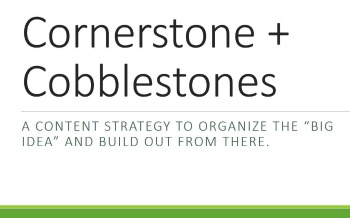Conrad Hilton reportedly said that the three most important attributes of a hotel are “location, location, and location.”
I stayed at a hotel on Majorca once that met that criteria — far from the touristy capital city, an easy drive from just about everywhere, and opening up onto gorgeous coastal scenery.
Location matters even if you don’t boast a Mediterranean coastal view.
The Swatch guy gets this.
I walked into his store the other day to ogle a couple of my favorite watches, and I asked him about the store’s location. (I thought it had moved. It had not. Clearly I don’t go to the shopping mall very often.) We started talking, and ended up having an insightful conversation about product mix, demographics, and foot traffic. We talked about:
- How the shopping mall is an “accessories” mall, where people often come just to buy a purse, a scarf, or shoes. In other words, a watch store fits in well with the area’s mix of products.
- How most watch purchases are impulse buys, so the store needs to be located where people have the resources to make impulse purchases. You have to know your demographics.
- How the store is well placed between “anchor” department stores and near both Disney and LEGO stores. A lot of parents come to the mall to shop for their kids and then pop into the Swatch store to window shop for themselves. Your business needs (foot) traffic.
It doesn’t hurt that the Swatch store is clean, uncluttered, and very colorful. Visual pop helps.
Location matters online too.
It’s easy to think about physical location (especially in bricks-and-mortar terms). But more and more of how we market and sell today happens digitally. Even if your storefront is online, many of the same challenges–visibility, audience, product–exist.
You can’t sell your products online if you can’t drive traffic to your site. You can’t educate the public, or advocate for your members, or sell consulting services.
You still have to be findable.
PS: And, yes, I bought a watch.
Photo by srgticker (Flickr).



